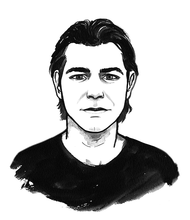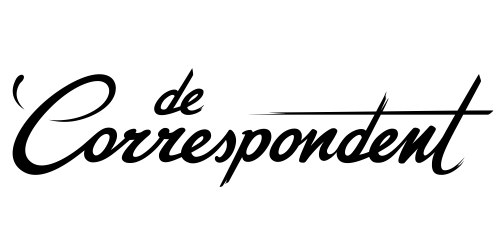“It’s very easy for an editorial team to appear to be taking a position. And that’s exactly what I don’t want. We don’t ever want to do that. We don’t want to take a position on the news. We want the viewers to take a position on the news.”
Those are the words of Marcel Gelauff, head of the Dutch public broadcasting company NOS’s news department.
Objectivity, the tenet being expressed here, may be the most poorly understood, tenacious, dangerous illusion journalism has ever believed in. Misunderstood, because it’s confused with independence and impartiality. Tenacious, because it seems easy and it’s cheap. Dangerous, because it’s the biggest lie you can tell the public. And an illusion, because it doesn’t exist.
The origins of the ideal
Journalistic objectivity, like many Western articles of faith, began as a late 19th-century ideal with very different aims than we attach to it today. Originally, journalism was nothing more than a megaphone for the powerful: the king dictated, and the reporters wrote it down. Newspapers were filled with pronouncements from on high: declarations of war, changes in navigation routes, calls to prayer, that kind of thing.
The Enlightenment and the rise of modern science eventually ushered in the idea of journalism as a critical counterpower: it should act as a watchdog, not a messenger. This conviction was rooted in a new ideal known as objectivity, which was linked to independence. We, the press, would decide what to report on. And we’d only do so once we’d made sure it was true.
Now, more than a century later, we’ve gained a fully professionalized PR and information industry and lost every modern illusion about Truth with a capital T, and objectivity has come to mean precisely the opposite. What gets reported, we believe, shouldn’t be determined by the press but by “what’s happening in the world.” The media’s job is merely to “report the news.” In Gelauff’s words, we shouldn’t take a position.
“We’ll figure it out” has become “You figure it out.”
Readers familiar with my news philosophy will already know what I think of objectivity. (De Correspondent’s founding principles explicitly renounce it). But at a time when Facebook and Google have devised fake-news earnings models, the White House is inhabited by a pathological bullshitter, and his counterparts are popping up in political races all across Europe, it’s worth saying again: the ideal of journalistic objectivity is an outright threat to democracy.
Here’s why.
1. There’s no such thing as objectivity
Marcel Gelauff says he doesn’t want his editorial team to take a position on the news. Let me be the first to say that, alas, it’s a vain hope. Describing the world with no idea of what’s good or bad, relevant or trivial, true or false is literally impossible.
Behind every report, every feature, every news item, lies a worldview rooted in assumptions ontological (what’s real?), epistemological (what’s true?), methodological (how do we find out?), and moral (why does it matter?). Or, to put it in Gelauffian terms, all news comes from a position.
Why doesn’t the evening newscast ever lead with crop circles made by UFOs? Because the editorial department takes the position that UFOs don’t exist.
Why doesn’t the news ever lead with a delayed train between St. Petersburg and Novosibirsk? Because the editors take the position that a late Russian train doesn’t matter here.
Why does the news never open with the biggest, most powerful Dutch company in the world, the oil and gas trader Vitol? Because the editors take the position that Vitol isn’t doing anything wrong.
The reverse is true too: why does the news open with a Trump tweet, a bombing in Syria, a domestic policy proposal, chaos at a national transportation hub? Because the editors take the position that statements by a US president, wars in the Middle East, our own leaders’ plans, and travel snafus in our own country matter.
And why does the news always call bombings by ISIS “terrorist attacks” and those by Western governments “bombardments”? Because the editors take the position that that’s what they are.
Why does the news always frame the growth of the economy as something positive and not as a disaster for the climate, the environment, or the corals in the ocean? Because the editors take the position that economic growth is good.
So when an editor claims not to take a position on the news, he or she is making the most basic misrepresentation possible.
And it’s also the worst instruction you can give your editorial team.
2. Objectivity is a poor ideal
So there’s no such thing as objectivity. But even if there were, journalists would need to steer clear of it.
That’s because the word “objectivity” is usually understood in terms of its moral dimension. Journalists are expected to suspend moral judgment. They’re not supposed to say what they think.
Yet this has never been an amoral business. On the contrary, journalism is moral through and through. It’s about what we as a society consider important, or should. All journalism, then, begins and ends with ideas about good and evil. The planet getting hotter isn’t news because it’s fact. The planet getting hotter is news because that’s a bad thing.
Journalism is moral through and through. It begins and ends with ideas of good and evil
If you order journalists to check their moral judgments at the door, one of two things will happen. Either they’ll have no clue what to report on and go home without a story, or they’ll figure it out in the only way possible: by letting others decide. In practice, that means becoming a mouthpiece for the establishment – the people with the power to decide what’s important, trivial, good, or bad. (Or, like the Dutch premier, to define what’s “normal” and what isn’t.)
Objective journalism, defined as not taking a position or having an opinion, has become precisely the opposite of what it was originally intended to be. Today, it equates to unquestioningly repeating the opinions of the powerful. By leaving the position-taking to the public, we reduce our task as journalists to issuing press releases on behalf of elites.
In short, we fail to fulfill our most basic duty.
That brings us to the third and most urgent problem with objectivity.
3. Objectivity threatens democracy
News is one of the most important sources of information in a democratic society. Today more than ever, it determines what we know, understand, and think about the world. It influences our voting behavior and how we see other people, cultures, and countries. To a large degree, it even shapes our image of ourselves.
Our view of the world is increasingly fueled by half-truths, whole fairytales, and bald-faced lies issuing from the uppermost ranks of global politics, amplified by the loudest yellers in domestic politics, and spread across millions of phones, laptops, and TVs in milliseconds. Today it’s more crucial than ever that journalism stand for something. We must commit to the values that are essential to a democratic society: to a check on power, to the pursuit of truth, to providing context and perspective.
When the president of the United States fabricates the number of attendees at his inauguration and then lashes out at every media organization that presents the evidence to show he’s lying, it’s not enough to report “Trump accuses media despite ample counterevidence,” as the NOS news did. Or to broadcast some even-handed variant that leaves the public in the lurch: “So-and-so reports X number of people, Trump says there were Y. And now over to Philip with the weather.”
Instead, you need to clearly announce that one of the world’s most powerful politicians is demonstrably lying yet again. And you’d better figure out why. Meanwhile, you should be keeping track of his actions and not just his words. Otherwise, “not taking a position” means being not only a mouthpiece for power but a conduit for lies.
If demagogues loathe political correctness, journalistic correctness is their best friend. And democracy’s no match for that.
—Translated from Dutch by Laura Martz and Erica Moore
More from De Correspondent:
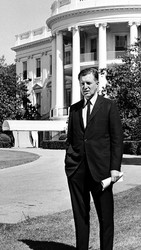
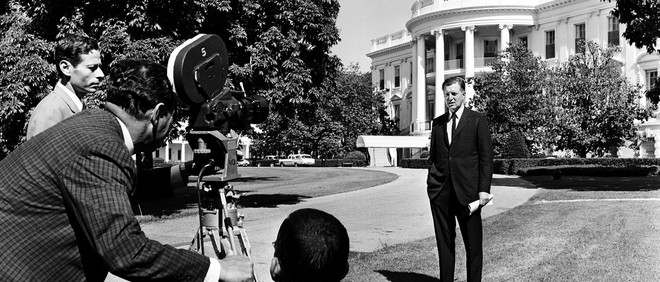 This is how we can fight Donald Trump’s attack on democracy
The news provokes outrage every day, but it rarely inspires sustained resistance. Now that Donald Trump has launched a frontal assault on democracy, the press needs to fundamentally change tack. Journalists have to beat historians to the punch and write history – before it repeats itself.
This is how we can fight Donald Trump’s attack on democracy
The news provokes outrage every day, but it rarely inspires sustained resistance. Now that Donald Trump has launched a frontal assault on democracy, the press needs to fundamentally change tack. Journalists have to beat historians to the punch and write history – before it repeats itself.
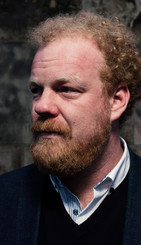
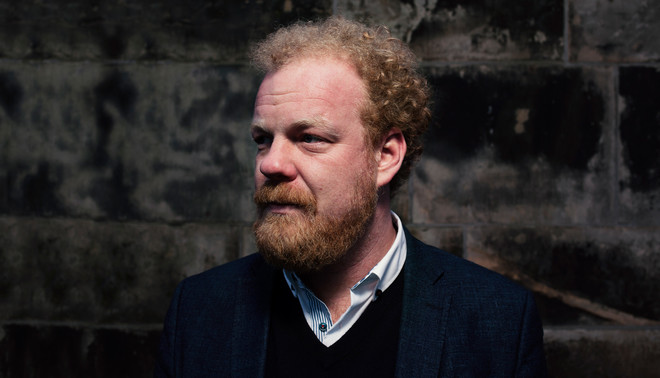 Podcast: Economics deals in good and evil, says this Czech economist
Economists are calling the shots. Through their computational models and mathematical formulas, they direct the course of our political and social debate. But one essential dimension is missing, says Tomáš Sedláček: ethics. Life’s most important values can’t be expressed in figures.
Podcast: Economics deals in good and evil, says this Czech economist
Economists are calling the shots. Through their computational models and mathematical formulas, they direct the course of our political and social debate. But one essential dimension is missing, says Tomáš Sedláček: ethics. Life’s most important values can’t be expressed in figures.
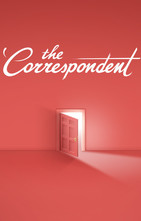
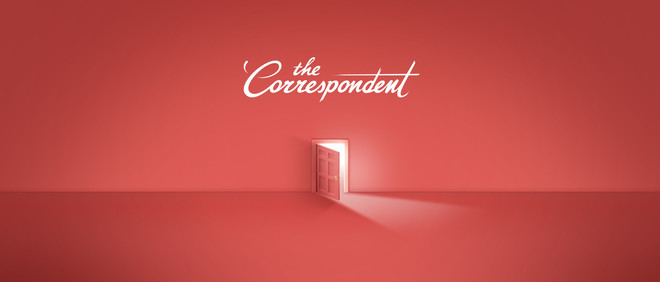 Big news! A year from now, you’ll be reading a full-fledged antidote to the daily news grind
The best in international journalism on an independent, ad-free platform with a global reach – we’re one step closer to making this dream come true. Here’s what’s next on the horizon.
Big news! A year from now, you’ll be reading a full-fledged antidote to the daily news grind
The best in international journalism on an independent, ad-free platform with a global reach – we’re one step closer to making this dream come true. Here’s what’s next on the horizon.
